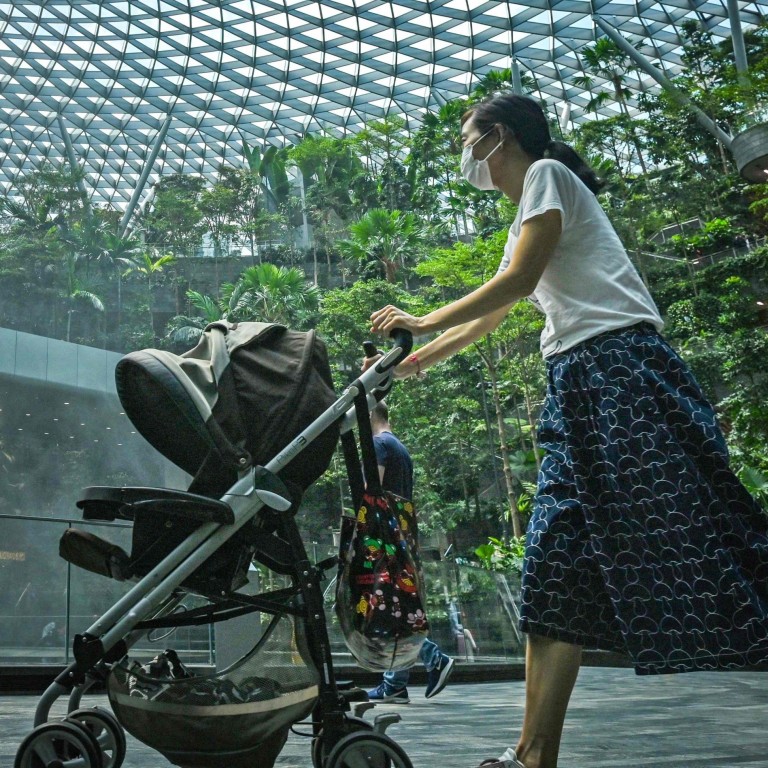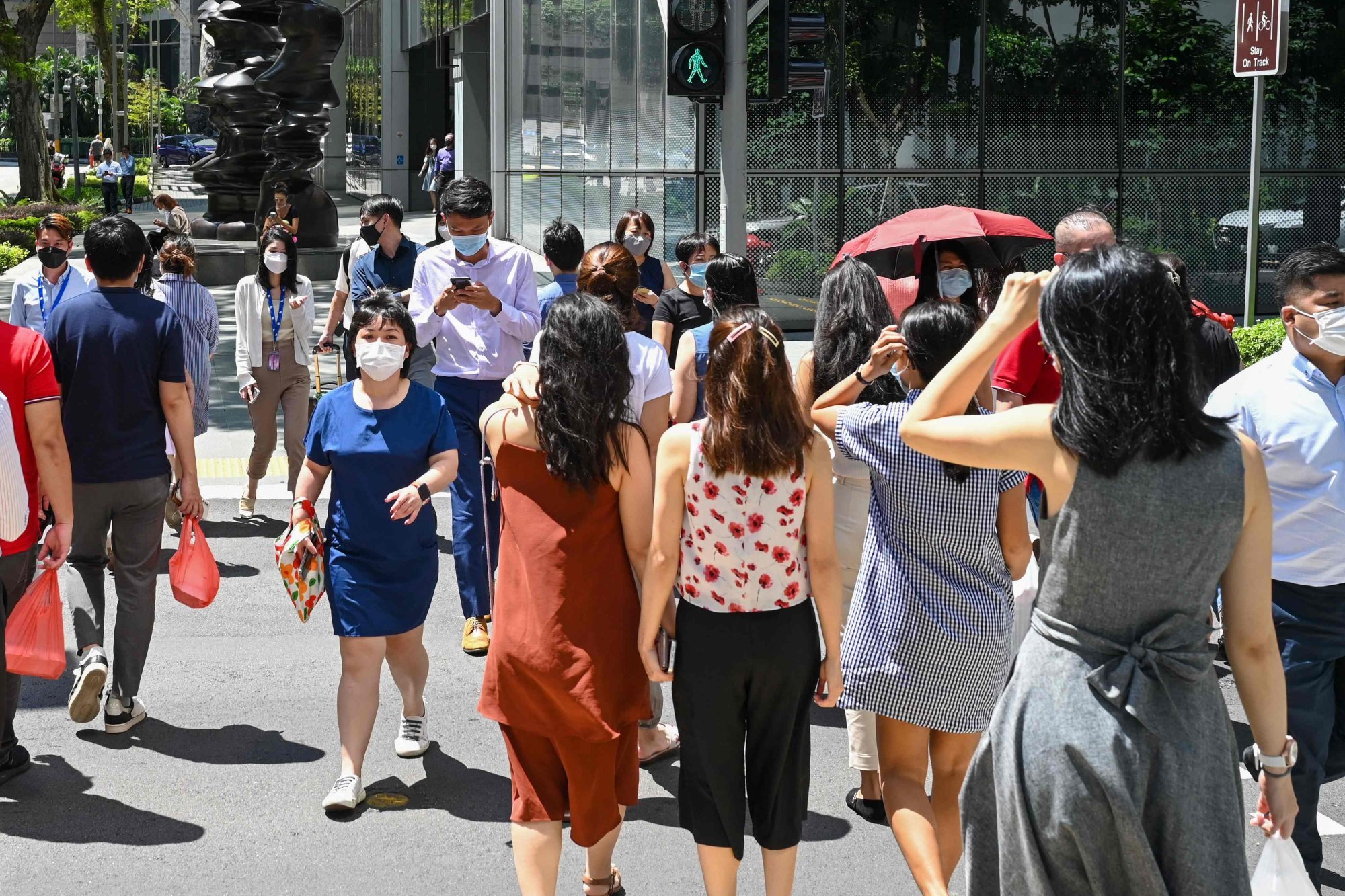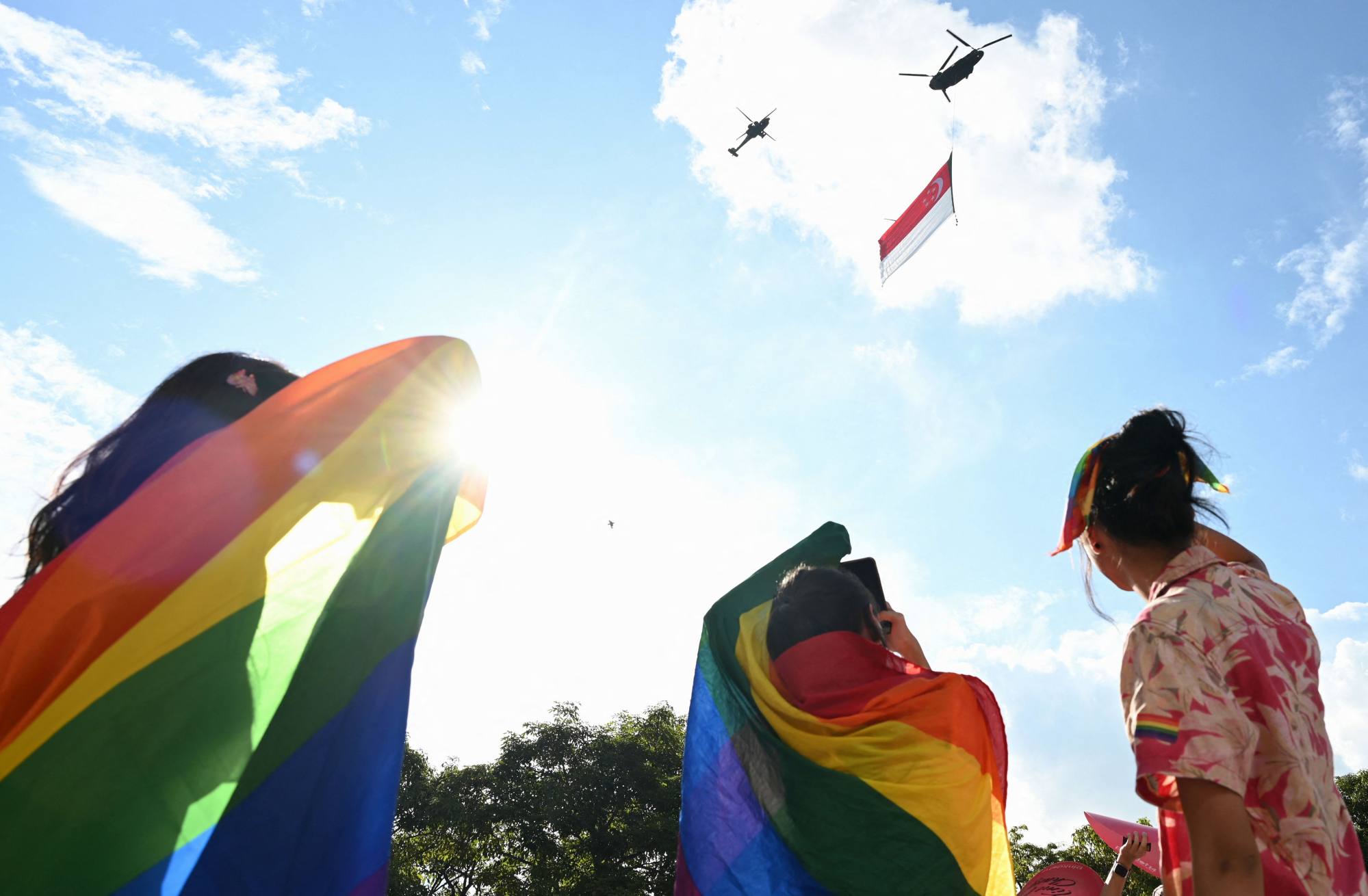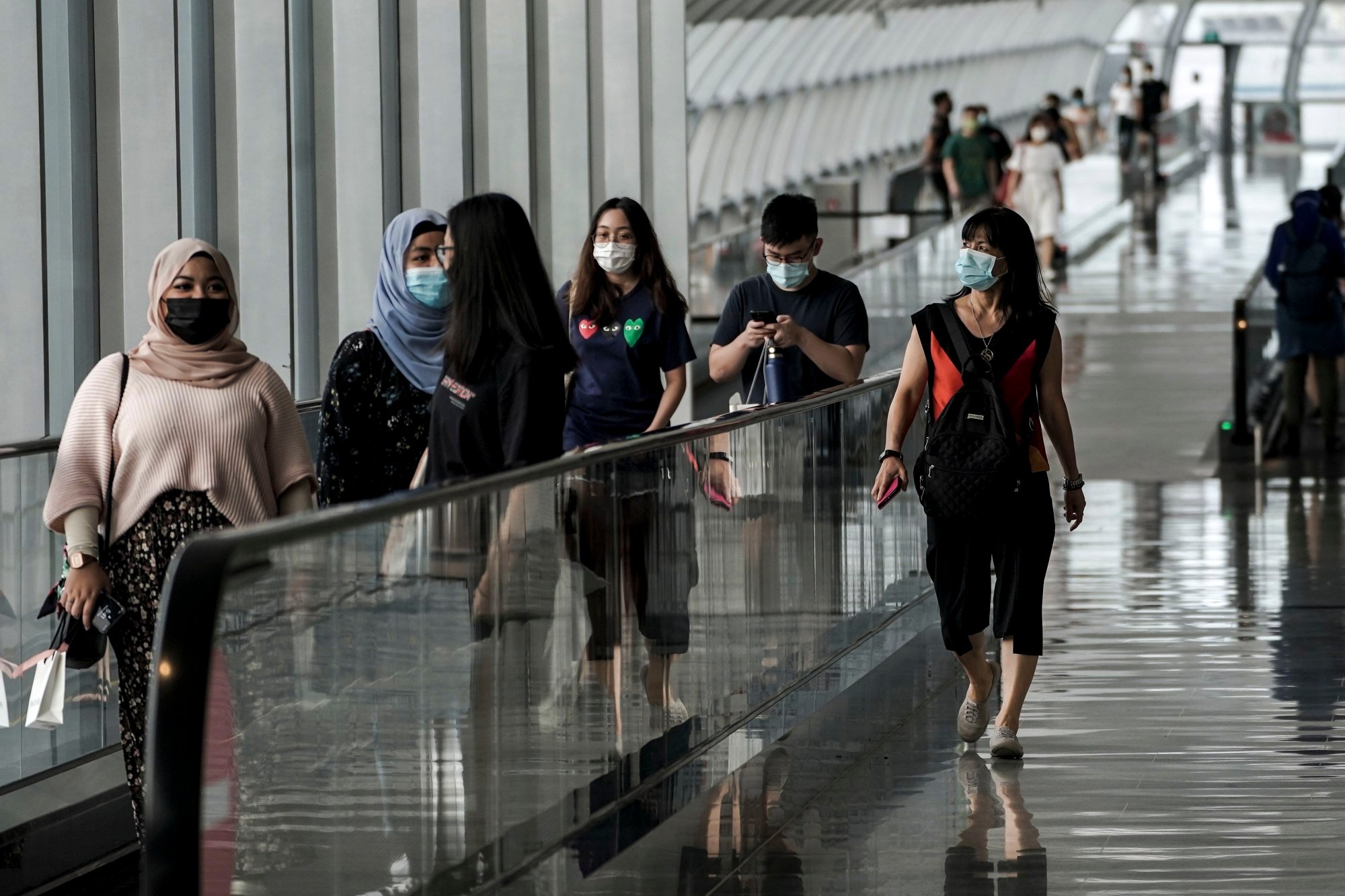
Singapore’s single women ‘not supported’ even as egg-freezing rules are eased
- Singapore has recently liberalised its egg-freezing rules, with women aged 21-37 allowed to undergo the procedure. But only those married are allowed to use them
- Its approach differs to elsewhere in Asia, including Taiwan, Malaysia, Thailand and Indonesia
Jusmin Tan was 32 when she toyed with the idea of freezing her eggs, having split up with her husband.
She had always wanted children but the option was not available to her in 2017, as Singapore at the time only allowed women with conditions that affected their fertility – like autoimmune conditions or low egg reserves – to freeze their eggs.
Following expert input, the government last year lifted those restrictions for women aged 21 to 35. This week, officials raised the upper age limit to 37.
While the tweak brought cheer to some women newly eligible for the procedure, others say the policy is still not fully inclusive as the use of frozen eggs only applies to those who are married.
Women’s fertility autonomy, not birth rates, should be our focus: UN
For women like Tan, who turned 38 this year, the liberalisation of the rules comes too little, too late. “If they increased the age limit to 40. I would definitely do it, immediately,” she said.
The move comes shortly after the city state recorded its lowest-ever total fertility rate of 1.05 last year. Many Asian governments believe a rate of 2.1 births per woman is an optimum replacement level, although the United Nations Population Fund recently described using the measure as a “gold standard” a “mistake”.
Instead, despite widespread fears that soon there would be too few people to sustain societies, it said experts were pointing out that falling birth rates were signs of demographic transition, rising lifespans and women exercising more control over their bodies and lives.
Women in some Asian societies have more control than in others. In Malaysia, Thailand, Indonesia, South Korea, Japan and Taiwan, which are also experiencing a slowing population growth, single women are allowed to freeze their eggs to prolong their fertility.

A ‘backup’ plan
More women in Singapore are choosing to tie the knot later – with the median age at first marriage for women being 29.1 years in 2021, official data shows, up from 27.3 in 2008 – and they see having their eggs fozen as having “insurance” or a “backup” plan.
While only married couples will be allowed to use frozen eggs, it has not deterred some from making plans. Teacher Fareeshah Dawood Epeer, 30, said: “As a single woman, who is not in any relationship right now, I think the idea of freezing your eggs acts as an insurance.
“If right now I’m getting one [set of eggs frozen], and if I meet my partner at the age of 35 and we decide to have a child at age of 36, it is still not too late,” she said, adding that she planned on doing the procedure sometime this year. The new rules kick in on July 1.
Social egg freezing: can it help boost Singapore’s flagging birth rate?
Others in the city state have condemned the marriage rule, saying it infringes on women’s agency over their bodies.
Juhee An, founder of Freedom Edge, an egg-freezing concierge firm, said women being forced to wait until marriage meant potentially years of deteriorating fertility in the process.
“Times have changed,” she said. “It’s our body and it’s our choice, period. Who can control the wish to have a family? It is a woman.”
“This is very unfortunate,” said Emma Zhang, an egg-freezing advocate and founder of the Instagram page @myeggsmytime. “But not surprising, of a conservative society, a blatant alienation of non-traditional [family] units.”
“Our country is not particularly supportive of single mothers, and obviously not of LGBTQ families, so this does not surprise me in the least,” she said. “Egg-freezing gives women options, and options are the only way women and society will be able to keep progressing.”

Last year, Singapore’s parliament voted to decriminalise gay sex but also amend the constitution to maintain the status-quo definition of marriage, following months of public debate.
Responding to a question by a reporter on whether the state would consider allowing single women to use their frozen eggs in the future, Minister of State for Social and Family Development Sun Xueling said this week: “Elective egg-freezing is a choice that a woman can make on her own. It is her tissue, she can choose to donate, she can choose to dispose of this tissue that is hers.
“But when it comes to conceiving a child, the frozen egg can only be used for parenthood within marriage and so the consent of the husband will be necessary,” she added.
The government’s move to raise the age limit of elective egg-freezing was aimed at supporting women’s aspirations and allowing more couples to start families later in life, Sun was quoted by broadcaster Channel NewsAsia as saying.
Many have urged officials to reconsider their position.
Women’s rights and gender equality advocacy group Aware said in a Facebook post on Tuesday that the rule “excludes single women and couples who also wish to become parents, but for whatever reason are not married or cannot marry”, stressing that the government should revisit its rule.

Lack of education, cost concerns
As interest in egg-freezing grows, concierge firms – which help with booking doctor’s appointments, air tickets and providing meal plans that boost fertility – have popped up across the island state.
Zora Health received 120 inquiries within its first week of business in March, founder Anna Haotanto said, and there were more still after this week’s announcement.
Many women ask about the price, if the procedure is painful and about drug side effects, she said.
Haotanto suggested that the volume of queries may be linked to a lack of access to reliable information. “I think all the inquiries just show that people know very little about it and most people don’t know what they don’t know about it.”
Fertale, another concierge firm that likewise launched this year, said issues such as stigma and financial barriers on top of limited awareness continue to exist, although the rules have been relaxed.
Based on interviews “with a diverse group of women from Southeast Asia who have undergone or are considering egg-freezing, a recurring pattern has emerged. Five prominent themes consistently highlighted by the respondents were awareness, accessibility, trust, social stigma and cost”, said Alina Rafikova, co-founder of the start-up, which helps aspiring mothers navigate their way through the process.
Experts push for urgent action as more Hongkongers say they ‘don’t need a baby’
Doctors say it is important for women to recognise that egg-freezing does not “guarantee” them a child – especially if they are older – and can cost anywhere from S$8,000 to S$15,000 (US$6,000 to US$11,000).
Dr Kelly Loi, medical director at Mount Elizabeth Hospital Fertility Centre, said: “The younger the age at which eggs are frozen, the higher the success rates as the eggs tend to be healthier and more likely to result in healthy embryos. However, understandably, many women only start considering fertility issues when they reach their thirties, especially when they haven’t found a suitable partner by then.”
A woman’s fertility starts to decline after 30, more so from the age of 35, given the lower number and quality of eggs, said associate professor Dr Sadhana Nadarajah, a consultant at the Department of Reproductive Medicine in KK Women’s and Children’s Hospital.
For those over 40, the chances of a live birth from frozen eggs are “close to zero”, said Nadarajah.
Egg-freezing is also not without risks, the experts note.
It involves stimulating the ovaries with hormones to produce multiple eggs, similar to the in-vitro fertilisation (IVF) process, and is an “invasive procedure” which carries surgical risks with no guarantee of conception, Nadarajah said.
While a woman’s frozen eggs do not age, she is still ageing herself so is at risk of developing medical conditions including fibroids, endometriosis, high-blood pressure and diabetes, all of which can complicate pregnancy, she said.
Loi urged women considering freezing their eggs to consult a specialist and undergo a gynaecological and fertility assessment.
“There is no guarantee of success but having your eggs frozen early will allow a better chance of pregnancy if you do end up requiring fertility treatment at a later age when you are no longer so fertile.”

